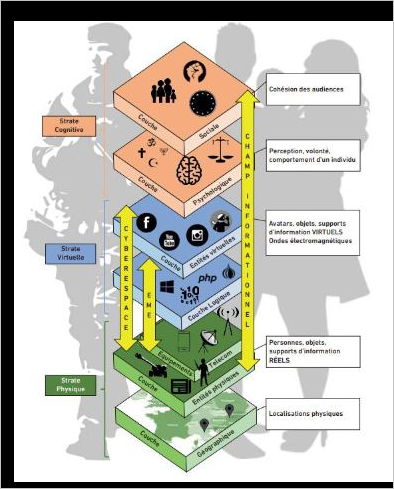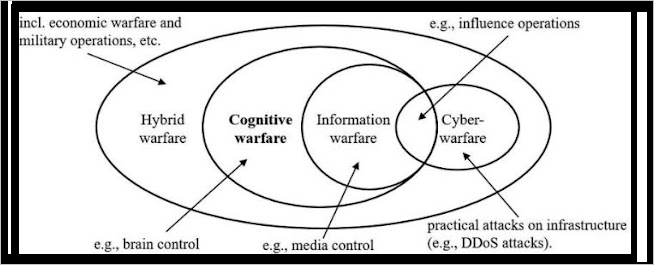Social media and for-profit media have tried to make people believe that there is a dictatorship in Venezuela and that the July 28 presidential election has been tainted by fraud. Washington disavows re-elected President Nicolas Maduro and several countries allied with US interests have followed the repeat scenario, but this time strengthened in the virtual domain (Internet).
In this sense, specialists and academics in the field of communication have described this phenomenon as cognitive warfare. The International University of Communications (Lauicom) defines the concept as follows: “This is a complex and progressive process of planned and systematic demolition of normal, individual and collective brain capacities.”
In this regard, academics and researchers who follow what is happening in the Bolivarian homeland have shared their impressions and analysis of the situation. The writer and documentary filmmaker Eduardo Viloria Daboon, winner of the Casa de las Américas Prize 2023 for his non-fiction book “Dapués del Incendio (Papeles de Guerra: Venezuela 2017-2021)”, which deals with part of this problem, explained that this confrontation has been going on for some time:
“For more than 20 years, Venezuela has been transformed into a gigantic laboratory where the most innovative, aggressive and violent techniques and methods of psychological manipulation and work against the human mind have been tested, tested and practiced in a never-ending, sustained, continuous, deep, even cruel manner. Why? To shape, reset, and redesign the entire subjectivity of an entire people. It is difficult to imagine a more aggressive form of violence than this, because the damage and consequences, which are certainly enormously deep, are extremely difficult to estimate, trace, even verify.”
A Repeated Historical Battle
Similarly, the mathematician, historian and writer José Sant Roz argues that there are elements of spirituality present in this now everyday reality for Venezuelan citizens, something that has been dragging behind since colonial times and in the struggle for independence, something for which the liberator Simon Bolivar had to fight at the time, and which is repeated today:
“It’s kind of about building a fantasy, a feeling. Today, with Maria Corina Machado, it is a question of basing something on religious elements. Most of the people who support it are, in essence, Catholics who seek the idea of a saint, a heroine, but a sacred divine heroine, and they build it by their own means …
This madness is very profound, it has been going on for many, it has been inoculated with the elderly, the pious and ungodly people, but it is transmitted by the Catholic values, and it is there that it finds its most important support. It’s something that’s been proven… wherever she went, where she went first, it was temples, the priests blessed her, gave her rosaries and called on people to gather around her and raise her to heaven like a true saint. I saw her in pictures, in many images that have reached me, above the Virgin Mary.”
Sant Roz adds that the symbolic representations that link religiosity with the figure of Maria Corina Machado, are part of the mantuano heritage to which she belongs and which she assumed as a divine mandate, since she is convinced that it is her holy crusade.

Anonymous and Elon Musk, instigators of the crime
On the other hand, sociologist and podcaster Robert Galbon warns that the country’s ultra-right benefits from transnational interests (of which it is a part) and is allied with computer terrorism. Galbon refers specifically to those who play a leading role in the backstage of this unconventional scenario and social influence:
“Maria Corina continues to play with fake news and the international press continues to be the great echo chamber of these lies… So when we say that Elon Musk and the hackers of Anonymous – some cells of Anonymous, rather, because we know that Anonymous is not a structure – operate against Venezuela, it is because they are seeking, among other things,have blocked all the media and all the Chavists who are on their social networks.
It is not only to keep them under control, at the discursive level, but also to prevent speeches other than those they impose in this “infophrenia” wall from being able to filter out. In other words, you will not see the opinion of a Chavista, you will lock it up, you will silence it, and it is important because it is a kind of shock therapy. According to sociologist Susan Sontag, in shock therapy, the subject must be perceived sensory, that is, he must not perceive light or sound, so that your speech enters directly and unconsciously, and that’s what happens here.”
On this analysis, Galban completes his thinking about the artificial sensation reflected in the hegemonic media and local operators who have participated with hate speech on electronic networks, as well as in acts of vandalism and attacks on people who support the government of Nicolas Maduro:
“There are a lot of people who believe that right now, in the streets of Caracas, there are guarimbas, there are murders, there are persecution, in short, whereas the streets are quieter than the rain. The other issue that is important to bear in mind in this Gnostheological War is the role of the undergrep in all of this. Indeed, about two years ago, they positioned the Tren de Aragua, an organization that does not exist outside the media.
They presented it as a criminal force that controls the underwriting all over the continent and as far as Spain. Today, they are the fundamental allies and liberators who are put forward in social media to liberate Venezuela. This is a reversal of meaning. Thus, what they called the under-age and that had to be repudiated because they were criminals and they came from Petare, Petare is a neighborhood that they all wanted to bomb all their lives.”
Another aspect of the language used in this cognitive war has been taken into account by scholars: the invention of a reality based on emotional images. According to Isabel Rivero, a writer and mistress in linguistics, the videos and audio-visual elements used do not correspond to the immediate present:
“In this situation of emotional vulnerability, emotion and cognition are one … Images of other events are shown and presented as current events. For example, images of what happened in 2017 are shown and presented as the product of a nationwide protest situation in Venezuela, manipulating, manipulating data, and what is underlying this manipulation of data is that human rights are being violated. And that shows only one reality, taking the contextual aspects that are right for the discourse and leaving aside other aspects that are not framework.”
And the consequences of a population connected to media screens are a warning, as Rivero puts it:
“We are experiencing something that I have defined as the second phase of alienation. Alienation makes the individual unfit, deprives him of his freedom of action and, as a result, he becomes a submissive individual and, in cognitive warfare, in addition to being a submissive individual, he is a disturbed individual, an individual who reacts simply to the stimuli projected by world capitalism.”

Hollywood and its propaganda apparatus
Now, from a perspective that transcends the nation’s internal dynamics and extends its spectrum beyond Venezuelan borders, considering aspects of foreign policy and its historical context, the internationalist and diplomat Carolina Escarr provides data that helps to understand the core of the issue:
“Minimum years ago, the mastermaster, Simon Rodriguez, was already talking a little bit about what cognitive warfare was. It is important to say that in 1966, the first director of the CIA, Alan Dulles, was already talking in his book “The Art of Intelligence,” a little of the goal of this cognitive war, which is to ensure that the interests of the dominant countries are assumed by the dominated countries as if they were their own interests. It’s about changing everything through culture, hence the importance of Hollywood machinery, all this transnational cultural machinery that operates.”
Escarr goes on to tell us that this is not just interference, but that it is part of a whole war plan, drawn up by one of the greatest hegemonic war machines of all time:
“About two years ago, NATO financed a report by a French soldier on cognitive warfare that was ultimately to be a synthesis of the five forms of NATO’s war, but much more specifically the CPI, i.e. information war, psychological warfare, and cyberwar.
In other words, NATO already has in mind the cyber war, which is part of what it has applied against the Bolivarian Republic of Venezuela, but in reality, what it has applied is cognitive warfare because it involves the information war: they begin by providing a lot of information, including false information that generates a way of thinking and psychologically taking on things, which is then offered in terms ofbut in particular the National Electoral Council”. The mind is the battlefield
In this regard, in another area of research, the social psychologist Luis Enrique Gavazut, a specialist in world conflicts that affect modern societies in relation to wars and the forms of domination of the population, stresses that the powers in place feed on the fear of the masses and that is why they seek to maintain these conflicts as policies of global power:
“Their goal is to achieve certain geopolitical objectives of a country attacking an attacked country. Basically, cognitive warfare aims to impose decisions and governments that are supportive of the country’s attacking or puppets’ interests. It is a concept invented by NATO, which has emphasized that it is an operation aimed, in narrow and strict terms, at cognitively manipulating the decision-making of senior military and political commanders in charge of strategic decision-making in the attacked country, disorienting them and leading them to make misguided and erroneous decisions and, consequently, to lose the war.”
Gavazut goes on to say that mental manipulation in this unconventional confrontation is about shaping behavior:
“An operation of political propaganda, of large-scale war propaganda, which differs from traditional propaganda mechanisms in that cognitive warfare no longer operates only in the realm of attitudes, that is to say, from the temporary modification or from the temporary orientation of the behavioral intention and of the manifest conduct towards a certain objective, but that it goes as far as the change or the transformation of the structures of values, the deep values of the human being, and the profound values of the human being.”
With regard to the role played by the media, and in addition to previous notes, journalist and media analyst William Castillo breaks down the aspects of storytelling, these stories that seek to awaken the passions and primary sensations that lead to irrational actions:
“The so-called psychological operations, which seek to impose certain narratives on a community, on the people of a country, or to create a certain atmosphere, a certain feeling in the mind, in collective emotion, are well known and well documented in history. The difference is that they developed with the use of social networks and emotional control mechanisms called algorithms. What algorithms do is that, based on your tastes on social media, they design profiles to offer you content that somehow reproduces what you have in your head, so that the user enters a kind of cognitive tunnel, a kind of echo chamber where he only listens to himself and things that make him feel good.”
And on the basis of this claim, based on other media operations observed in other recent times and in latitudes that still make the news, the imaginaries and lies supported by the West are used, of which Castillo gives palpable examples:
“Social media has also achieved another goal, which is to encourage hatred, exclusion and intolerance around the world. It is the result of the certainty of the companies that manage these large information networks that negative content circulates more than positive content. On this basis, a wave of intolerance has spread around the world, a wave of so-called hate crimes and expressed in different ways.
For example, we saw this a few hours ago with the persecution of non-white people in England. We saw this with the beheadings led by ISIS, which were encouraged and legitimized by social media in Syria. Or we see it with the murders of children in Gaza, who are legitimized by the murderers and who showed these videos on social media to show that it is normal to do so.”
The media analyst mentions that in the two decades that Venezuela was subjected to these mental war operations, “the imposition of post-truths, false narratives has accelerated, and new instruments are now being used.” This is intended to legitimize, on the part of the extremist sector, the desire to validate the aggression against people who think differently and the destruction of public property.
Culture as a Fatal weapon
Another aspect that is in the cultural sphere is dissected by the social communicator and specialist teacher Marco Aurelio Rodriguez. From a pedagogical point of view, he argues that the confusion and disorientation of the brain, obtained by the consumption of audiovisual content, are part of what is sought in the application of cognitive warfare:
“We have seen through cinema, television and other screens, US agents or certain Western powers illegally break the borders of one of our countries on the periphery of the world, kidnap a leader or murder sentries – a transnational media practice aimed at naturalising in the eyes of the peoples of the world the same crimes that, off-screen, are committed by the powers over our territories in order to perpetuate their domination. Of course, these techniques now have important technological advances for mind control, and now controversial artificial intelligence with a pandora’s box is perceived as a magic tool or a new weapon of Western powers to make virtual reality more implausible.”
Finally, Luis Delgado Arria, a university professor and expert in hybrid warfare, analyses certain moral elements of induced co-optation and subliminal seduction that are linked to what is happening in the field of experimentation that Venezuela has become:
“Western imperialism has succeeded, on the one hand, in physically kidnapping a large number of young people by taking them abroad as part of a kind of operation that they have called, I would go too far from Venezuela. On the other hand, it has succeeded in psychologically kidnapping a large number of young people and children who have remained in the country, but who have been inoculated with a resentment of their own government, their own land, their own country, and even their own families, making them lose the notion of what the present is for and making them lose the horizon of what they could do in their country in the future. This is how the perfect kidnapping is realized, a kidnapping in which the victim falls in love with the aggressor and attacks his own family, his own country, her own homeland and herself, thus becoming the perfect victim with whom the imperialisms have operated against all peoples, making her, in this new generation of war, the youth, that is to say the future of a country, a conspiracy against her own .
This war of war, which is taking place in real time, is not unique to Venezuela. It takes place in Palestine, Syria, Lebanon, Ukraine (caused by the West), the Horn of Africa, and, to paraphrase the popular communicator José Roberto Duque, it is also taking place in poor neighborhoods in the US, France, or the United Kingdom; it is the de facto war of power against the people.
 Eurasia Press & News
Eurasia Press & News




